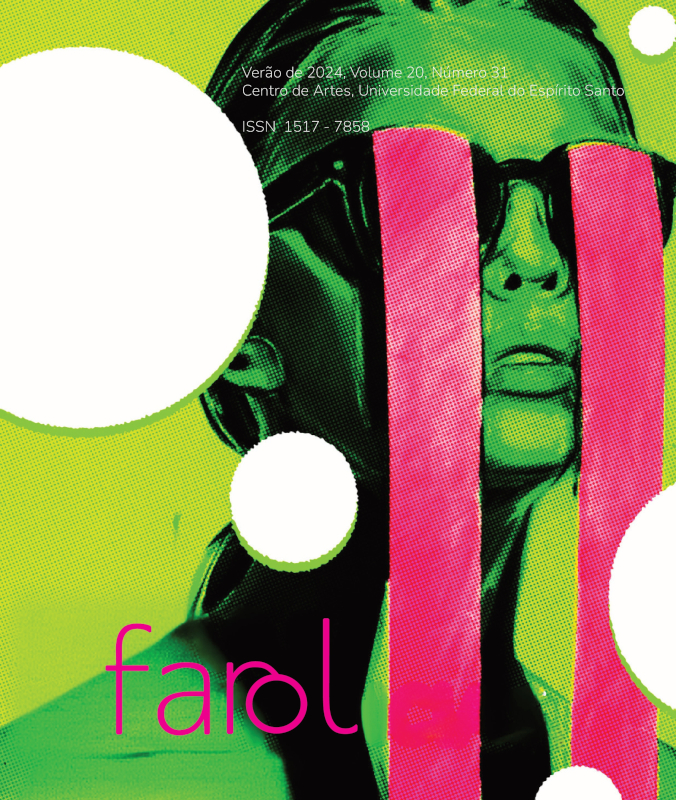How we learn our names is written in the colour of the sky
personing in the Capitalocene
DOI:
https://doi.org/10.47456/rf.v20i31.47179Keywords:
capitalocene, antropocene, Boreal ForestAbstract
The summer sky is now too often the colour of turmeric. Forest fire smoke, blown in from hundreds of kilometers away, gets stuck like too-wide nets between buildings. Edmonton, Alberta, where I have lived for nearly twenty years is a city on the edge of the Canadian Boreal Forest. It is the largest part of the Taiga, the second largest forest in the world that stretches across Canada and continues across Iceland, Norway, Sweden, Finland, Russia, Mongolia, and Japan. In Canada it covers 270 million hectares between flat prairie and the treeless arctic tundra. The Boreal Forest is the homeland of more than 600 Indigenous communities, most of the known fossil fuel reserves in Canada, it stores more than 208 billion tons of carbon (11% of the world’s total), and along with the Amazon Rainforest is the second of the two great lungs of the world.
Downloads
References
ARONS, Wendy. We Should be Talking about the Capitalocene. TDR: Names and Forms, v. 67, n. 1, p. 35-40, 2023.
BATESON, Gregory; BATESON, Mary Catherine. Angels Fear: Towards an Epistemology of the Sacred. New York: MacMillan Publishing Company, 1987.
BRAIDOTTI, Rosi. Writing as a Nomadic Subject. Comparative Critical Studies, v. 11, n. 2-3, Edinburgh: Edinburgh University Press, p. 163-184, 2014.
CONNELL, R. W.; MESSERSCHMIDT, James W. Hegemonic Masculinity: Rethinking the Concept. Gender and Society, v. 19, n. 6, p. 829-859, 2005.
DELEUZE, Gilles; GUATTARI, Felix. Nomadology: The War Machine. Seattle: Wormwood Distribution, 2010.
DIANGELO, Robin. White Fragility. Counterpoints, n. 497, p. 245-253, 2016.
FORBES, Jack D. Columbus and Other Cannibals: The Wétiko Disease of Exploitation, Imperialism, and Terrorism. New York: Seven Stories Press, 1979.
FOSTER, John Bellamy; CLARK, Brett; YORK, Richard. The Ecological Rift: Capitalism’s War on the Earth. New York: Monthly Review Press, 2010.
GUATTARI, Félix; ROLNIK, Suely. Molecular Revolution in Brazil. Los Angeles: Semiotext(e), 2008.
GUATTARI, Félix. The Three Ecologies. London: The Athlone Press, 2000.
HARAWAY, Donna J. Modest_Witness@ Second_Millennium: FemaleMan©_Meets_OncoMouse ™: Feminism and Technoscience. New York: Routledge, 1997.
HARAWAY, Donna J. Staying with the Trouble: Making Kin in the Chthulucene. Minneapolis: University of Minnesota Press, 2016a.
HARAWAY, Donna J. Manifestly Haraway. Minneapolis: University of Minnesota Press, 2016b.
HARNEY, Stefano; MOTEN, Fred. All Incomplete. New York: Minor Compositions, 2021.
HARNEY, Stefano; MOTEN, Fred. The Undercommons: Fugitive Planning & Black Study. New York: Minor Compositions, 2013.
INGOLD, Tim. Imagining for Real: Essays on Creation, Attention and Correspondence. New York: Routledge, 2022.
INGOLD, Tim. Anthropology: Why it Matters. Cambridge: Polity Press, 2018.
KING, Rosamond S. Radical Interdisciplinarity: A New Iteration of a Woman of Color Methodology. Meridians: Feminism, Race, Transnationalism, v. 19, n. 2, p. 445-456, 2019.
KIRBY, Roger; KIRBY, Mike. The Perils of Toxic Masculinity: Four Case Studies. Trends in Urology & Men’s Health, v. 10, n. 5, p. 18-20, 2019.
LERTZMAN, David Adam. Best of Two Worlds: Traditional Ecological Knowledge and Western Science in Ecosystem-Based Management. BC Journal of Ecosystems and Management, v. 10, n. 3, p. 104-127, 2010.
LORDE, Audrey. Zami: A New Spelling of My Name. Berkeley: Crossing Press, 1982.
LOVELESS, Natalie. How to Make Art at the End of the World: A Manifesto for Research-Creation. Durham: Duke University Press, 2019.
LOVELESS, Natalie. Knowing & Knots: Methodologies and Ecologies in Research Creation. Edmonton: University of Alberta Press, 2020.
MACDONALD, Michael B. Playing for Change: Music Festivals as Community Learning and Development. New York: Peter Lang, 2016.
MACDONALD, Michael B. CineWorlding: Scenes of Cinematic Research-Creation. New York: Bloomsbury Publishing, 2023.
MANNING, Erin. The Minor Gesture. Durham: Duke University Press, 2016.
MANNING, Erin. For a Pragmatics of the Useless. Durham: Duke University Press, 2020.
MAUSS, Marcel. A Category of the Human Mind: The Notion of Person; the Notion of Self. In: CARRITHERS, Michael; COLLINS, Steven; LUKES, Steven (Eds.). The Category of the Person: Anthropology, Philosophy, History. Cambridge: Cambridge University Press, p. 1-25, 1938.
PAINTER, Nell I. The History of White People. New York: W. W. Norton and Company, 2010.
ROLNIK, Suely. Spheres of Insurrection: Notes on Decolonizing the Unconscious. Cambridge: Polity Press, 2023.
SPATZ, Ben. Race and the Forms of Knowledge: Technique, Identity, and Place in Artistic Research. Evanston: Northwestern University Press, 2024.
STARHAWK. The Spiral Dance: A Rebirth of the Ancient Religion of the Great Goddess. New York: Harper One, 1979/1999.
WALKER, Katherine. Okâwîmâwaskiy: Regenerating a Wholistic Ethics. University of British Columbia, 2021. (Dissertação).
Downloads
Published
How to Cite
Issue
Section
License
Copyright (c) 2024 Michael B. MacDonald

This work is licensed under a Creative Commons Attribution-NonCommercial-ShareAlike 4.0 International License.
The authors of works submitted to Revista Farol authorize their publication in physical and electronic media, solely for academic purposes, and may be reproduced as long as the source is cited. They attest to their originality, authorship and originality.





